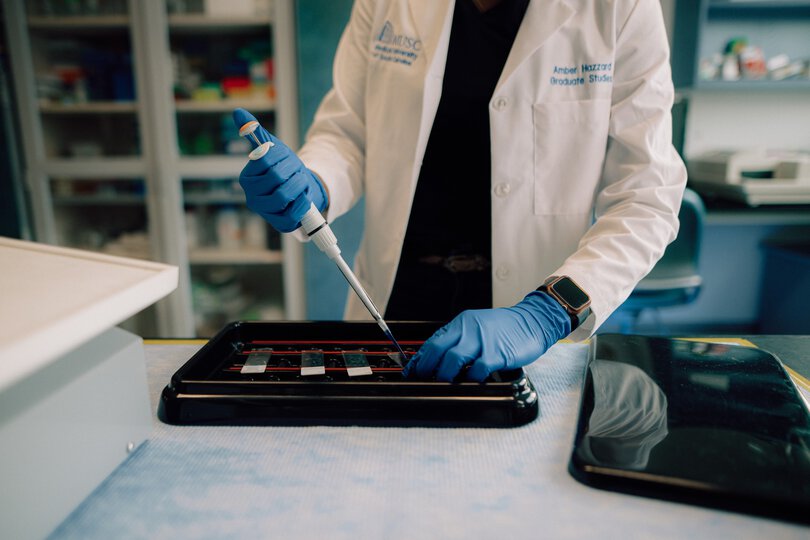Supporting investigators inside and outside of MUSC.
MUSC offers a wide array of research cores that provide state-of-the-art instrumentation and specialized expertise to support innovative biomedical research, ranging from basic to translational science. These cores are available to investigators both within and outside the institution. Most cores operate on a charge-back basis, with varying levels of institutional support from the University, Hollings Cancer Center (HCC), centers such as COBREs, colleges, or departments. While many interactions with cores are service-based, others involve close collaboration, particularly when developing new technologies or methodologies. To learn more about a specific core’s services, instrumentation, pricing, and contact details, please visit the individual core’s web page. Service requests may be managed through a variety of platforms, including the Core Management System Infinity, SPARC Request, Calpendo, or direct email, depending on the core. If you plan to include core services in a grant application, it is essential to consult the core director in advance. This ensures the core can provide the services you need and allows time to develop an accurate budget.
Research cores at MUSC are overseen by Dr. Lauren Ball and are reviewed annually by the MUSC Cores Committee.
To view a list of MUSC Research Core equipment, please click here. List updated 6/13/25.
For more information about research cores at MUSC, please contact:
Lauren Ball, Ph.D., at ballle@musc.edu or 843-792-4513.





